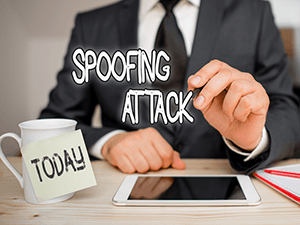Phishing is the gateway to many damaging cyber threats like business email compromise (BEC), ransomware and account takeover (ATO). Unfortunately, employees are inundated by phishing messages every day. They’re getting harder for users to spot thanks to technologies like generative artificial intelligence (AI). These are just a few of the myriad reasons why it is crucial for businesses to include phishing simulations in a comprehensive security awareness training program.
Your human firewall is your first line of defense.
Employees are often the first line of defense against cyberthreats. By equipping them with the knowledge to recognize and thwart phishing attempts, businesses create a proactive human firewall. Employees are an integral part of an organization’s cybersecurity infrastructure, contributing to its overall resilience against malicious activities. However, only 16% of employees are capable of recognizing cyberthreats without security awareness training.
Phishing is a persistent and evolving threat.
Phishing attacks continue to evolve in sophistication, making them harder to detect. Comprehensive training ensures that employees are aware of the various forms of phishing, from traditional email scams to more advanced tactics like spear-phishing and social engineering. This awareness is crucial in staying ahead of the curve and adapting to the ever-changing threat landscape.
Protect sensitive information.
Businesses handle vast amounts of sensitive information, including customer data, financial records and proprietary intellectual property. Unfortunately, it’s easy for that data to fall into the wrong hands thanks to cybercriminal tricks. In fact, data breaches in the United States increased by 78% in 2023. Falling victim to a phishing attack can lead to unauthorized access to this information, potentially resulting in financial losses, reputational damage and legal consequences. Training employees to discern phishing messages is instrumental in safeguarding the organization’s sensitive data.
Avoid severe financial and operational consequences.
Phishing attacks can have severe financial implications for businesses. From direct losses due to fraudulent activities to indirect costs associated with system downtime and recovery efforts, the financial consequences of a successful phishing attack can be significant. Training employees mitigates the risk of falling victim to such attacks, ultimately preserving the financial health of the organization.
Preserving business reputation.
A successful phishing attack not only jeopardizes financial stability but can also tarnish a business’s reputation. A report by IBM and Forbes Insights found that 46% of organizations that experienced a cybersecurity breach suffered a major hit to their reputation and their brand’s value as a result. Customer trust is built on the assurance that their data is secure. Training employees to identify and avoid phishing messages reinforces the organization’s commitment to data security, preserving its reputation as a trustworthy entity.
Regulatory compliance is threatened.
In an era of stringent data protection regulations, businesses are obligated to comply with standards that govern the handling of sensitive information. Falling victim to a phishing attack can lead to breaches of compliance, resulting in legal repercussions and financial penalties. Employee training ensures adherence to regulatory requirements and helps organizations avoid legal pitfalls. Employees have said that well-planned employee training programs positively affect their level of engagement in security practices and data-handling procedures.
Creating a security-conscious culture.
Training fosters a culture of cybersecurity awareness within an organization. When employees understand the risks associated with phishing and the importance of their role in preventing such threats, they become more vigilant and proactive. This cultural shift contributes to a more resilient and secure work environment. Security awareness training is a smart investment: a corporate data security training program saves businesses an average of $2.54 million in costs.
Beware the bait: Today’s 5 Most Pervasive Phishing Threats
Businesses are constantly under siege every day by a myriad of phishing threats. These are the five most common phishing threats that employees encounter daily.
1. Social engineering and spear phishing
Social engineering remains one of the most effective tactics used in phishing attacks. Cybercriminals leverage social engineering techniques to manipulate individuals into divulging sensitive information or performing actions that compromise their security. Spear phishing takes this a step further by targeting specific individuals or organizations, often using personalized and highly convincing messages that appear to come from a trusted source. Spear phishing emails are a tool utilized by an estimated 65% of cybercrime groups when they carry out targeted cyberattacks.
2. Business email compromise (BEC)
Business email compromise (BEC) attacks have become increasingly prevalent in recent years, posing a significant threat to organizations of all sizes. In fact, the U.S. Federal Bureau of Investigation Internet Crime Complaint Center (FBI IC3) noted that business email compromise is 64 times worse for businesses than ransomware. In a BEC attack, cybercriminals impersonate company executives or trusted partners to trick employees into transferring funds, sharing sensitive information or performing other actions that result in financial loss or data breaches. These attacks often rely on careful reconnaissance and social engineering tactics to appear legitimate.
3. Credential harvesting and account takeover
Phishing attacks targeting credentials and account information remain a persistent threat. Cybercriminals use phishing emails or fake websites to trick users into entering their login credentials, which are then harvested and used to gain unauthorized access to accounts. Once compromised, these accounts can be used for various malicious activities, including identity theft, fraud and spreading malware. However, businesses can mitigate this risk. Venture Beat reports that 84% of businesses in a recent survey said that security awareness training has reduced their phishing failure rates.
4. COVID-19 related scams
The COVID-19 pandemic may have ended, but that doesn’t mean that bad actors can’t still profit from it. COVID-19 has provided fertile ground for phishing scams, with cybercriminals exploiting fears and uncertainties surrounding the virus to launch targeted attacks. Common COVID-19-related phishing scams include fake emails claiming to offer information about the virus, bogus offers for vaccines or treatments, and phishing emails impersonating healthcare organizations or government agencies. People in the U.S. have lost an estimated $145 million to COVID-19 fraud.
5. Vishing and smishing
While email remains the most common vector for phishing attacks, cybercriminals are increasingly diversifying their tactics to target users through voice calls (vishing) and text messages (smishing). Vishing attacks often involve automated voice messages or live callers impersonating trusted entities, such as banks or government agencies, to trick individuals into revealing sensitive information or transferring funds. Smishing attacks, on the other hand, use SMS or text messages to deceive users into clicking on malicious links or providing personal information. They are very hard for employees to spot – according to Carnegie Mellon University, less than 35% of the population even knows what smishing is.
In Summary
Training employees to recognize and avoid phishing in all of its forms is a smart investment in the overall cybersecurity posture of a business. It not only protects sensitive information, financial assets and reputation but also cultivates a workforce that is actively engaged in safeguarding the organization against evolving cyberthreats. As businesses navigate the complexities of the digital landscape, empowering employees with the knowledge to combat phishing becomes an indispensable strategy for ensuring long-term success and resilience.
Article courtesy Kaseya





